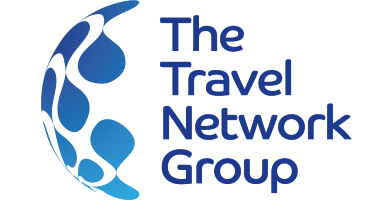2. Travel Regulations & Legalities
Travel Regulation & Legalities
Why read this section? The founders of The Travel Network Group set up a travel business many years ago. At the time it was quite a difficult process. That inspired them to set up a company that helped others set up their own travel businesses, and navigate through the regulation and legalities. While this section might look like one to skip, there are some big costs and implications to consider. This section will make you aware of the regulation and how it impacts the way you set up and run your travel business.
What you need to know before you read this section: Nothing!
In order to operate, you need a basic understanding of the relevant rules for three regulatory bodies and a fourth commercial body. These are the:
- European Package Travel Regulation (PTR)
- Civil Aviation Authorities (CAA) Air Traffic Organisers License (ATOL)
- Financial Conduct Authority (FCA)
- Merchant acquirers (companies able to offer you a credit card facility for taking customer payments) commercial practices.
The links above describe each and its impact on your business and then what you can do to operate within the rules. One confusion which we need to clear up is the PTR and ATOL overlap.
This section has been about a set of guarantees that you have no real choice over. The final requirements are for Professional Indemnity Insurance (PI), Public Liability Insurance (PL) and Public and Product Liability Insurance (PPL). PI insures you against malpractice by you and your staff (depending on the policy details). PL and PPL insure you against being held responsible for the damage or harm to one of your customers caused by a third party failure. As far as I am aware, there is no definitive need to have PI, PL or PPL but I would very strongly recommend it.
If you are new to the travel industry, then this section takes a lot of understanding. As I have said, you may appreciate why The Travel Network Group was set up to offer a way of working which meets all of these regulatory needs, at very low start up costs.
European Package Travel Regulation
As the name suggests, this regulation applies to the sale of a package to a consumer. A package is a booking that involves two or more travel elements, for example a flight and a hotel, or a hotel and car hire. Any booking for a single item, for example a flight only booking, is not covered by the PTR.
The regulation makes two demands on your business for package sales:
- The company selling the package to a consumer must have guarantees in place that should the seller, or any of its suppliers cease to trade, the customer gets a refund or the holiday they purchased.
- If the customer is on vacation at the time of the default, then the seller must guarantee customer repatriation.
In other words, your business must provide a guarantee that, in the event of your company getting into financial difficulties, the customers to whom you sold a package are guaranteed their holiday, their cash or safe passage home.
Clearly the guarantee must be backed by a third party and cannot be internal. At The Travel Network Group, we run a trust account system for all our member companies. This provides the guarantees required by the PTR with no upfront costs. The usual alternative is to purchase a bond, which incurs a significant upfront cost.
Civil Aviation Authorities (CAA) ATOL
The CAA run a consumer protection scheme called the ATOL. As with the PTR, it is designed to protect consumers in the event of their tour operator ceasing to trade. The difference is that the ATOL applies to any travel booking that includes a flight. So it does cover a flight only booking, and it does cover say, a flight and hotel booking. It does not apply to the hotel booking with car hire.
As with the PTR, your business must provide a consumer guarantee, in this case agreed with the CAA. In the event of your company getting into financial difficulties, the customers to whom you sold a package are guaranteed their holiday, their cash or safe passage home. If you offer this guarantee you are an ATOL holder.
You can sell to a consumer without an ATOL by being the retail agent of the ATOL holder. This requires the agreement of the ATOL holder as they essentially carry the risk of failure, as in they offer the guarantee to the consumer for your bookings.
One additional piece of complexity is that a flight may be sold by an airline to a customer through more than one ATOL holder. For example, airline sells to ATOL holder 1, who sells to ATOL holder 2, who sells to the consumer. In these cases, the ATOL holder nearest the customer (ATOL holder 2 in this example) provides the guarantee against failure. If the airline fails, then ATOL holder 2 in this example, has to provide the customer guarantee.
Finally, airlines do not need to hold an ATOL. As a flight ticket provider they are exempt from this part of the CAA regulation. In theory you could become a general sales agent of the airline and sell their tickets. However, this is unlikely to be an option for a start-up. Therefore you will need to hold an ATOL or be the retail agent of an ATOL holder.
In order to run your business within the ATOL rules you need to implement one of the following:
- The Travel Network Group: join the Travel Network Group and get a T-ATOL, which comes at a marginal cost to our members as the trust fund provides the core to the consumer protection required by the ATOL. The T-ATOL provides consumer protection for up to 20,000 flights per year
- CAA: agree on a bonding level with the CAA, purchase this bond which is held by the CAA. This will require significant upfront costs. There is also a £2.50 per passenger APC cost. As a new business, this is in addition to the cost of bonding
- Retail agent: constrain your business to act as the retail agent of an ATOL holder and sell the products of the ATOL holder
Financial Conduct Authority (FCA)
Just when you thought you had got your head around the package regulation, we have to introduce you to the financial services regulation, governed by the Financial Conduct Authority. Specific parts of this large body of regulation will have a potential impact on you.
If you are marketing or selling regulated financial products to the consumer (for example travel insurance) then your legal status and conduct come under scrutiny. As a start-up business you are very unlikely to become an FCA approved company as it is time consuming and adds some administration requirements onto your business. You have two realistic choices.
- The first that we can recommend is to become an introducer where you pass the customer to an FCA approved company. This company is licensed to sell the financial services product (travel insurance in this example). While this option is relatively simple to set up, it does mean that you cannot actively sell the financial product
- The second choice is to become an appointed representative of an approved company. The approved company will monitor how you sell as they carry the regulatory risk of you miss-selling. While this option allows you to sell the financial product, it will be difficult to set up quickly and does incur an administration overhead
Merchant Acquirer Facilities
If you want to take payments from credit cards you need to have a merchant facility, also known as a credit card facility. This is neither a regulatory or legal requirement, but a commercial requirement from the credit card industry. The reason for including it here in our regulatory section is that it leads to a similar implication.
When a customer makes a credit card purchase for more than £100, the credit card company has to insure that purchase. If the company who sold to the customer fails to deliver (assume they become insolvent) the credit card company has to refund the customer. As a result, the credit card company is careful about handing out merchant facilities.
To protect themselves, they will almost certainly ask for some form of a guarantee or bond. As with the PTR and ATOL, this will require some upfront costs. Once again, membership with the Travel Network Group comes with a credit card facility. This facility is also cheaper to use than the standard deal offered.
Before you rush off to get your merchant facility, it may be worth knowing that there are three different types of credit card facility:
- Physical terminal: a physical device that you manually process payments through
- Desktop facility: this operates in the same way as a physical terminal but it allows multiple users access at the same time – it is therefore better for larger companies
- Online facility: this enables customers to make payments over a website and use the merchant facility remotely
PTR and ATOL Overlap
What confused me when I read about ATOL and PTR was the overlap. For example, what scheme applies when both sets of regulation applies? The table below summarises what applies to each type of booking:
| Type Of Booking | European Travel Regulation Applies? | ATOL Applies? |
| Single item, not a flight | No | No |
| Flight only | No | Yes |
| Package including a flight | Yes | Yes |
| Package without a flight | Yes | No |
The implications are that:
- Single item bookings that are not a flight are not covered by either set of regulation. You will not need to provide a guarantee
- If you sell flights then you will need an ATOL (or T-ATOL from us) or be the retail agent of an ATOL holder. The ATOL will not provide the guarantee for failures on packages which did not include a flight
- If you sell packages without a flight, you will need a separate guarantee from the ATOL (again our membership models also cover this as standard)


